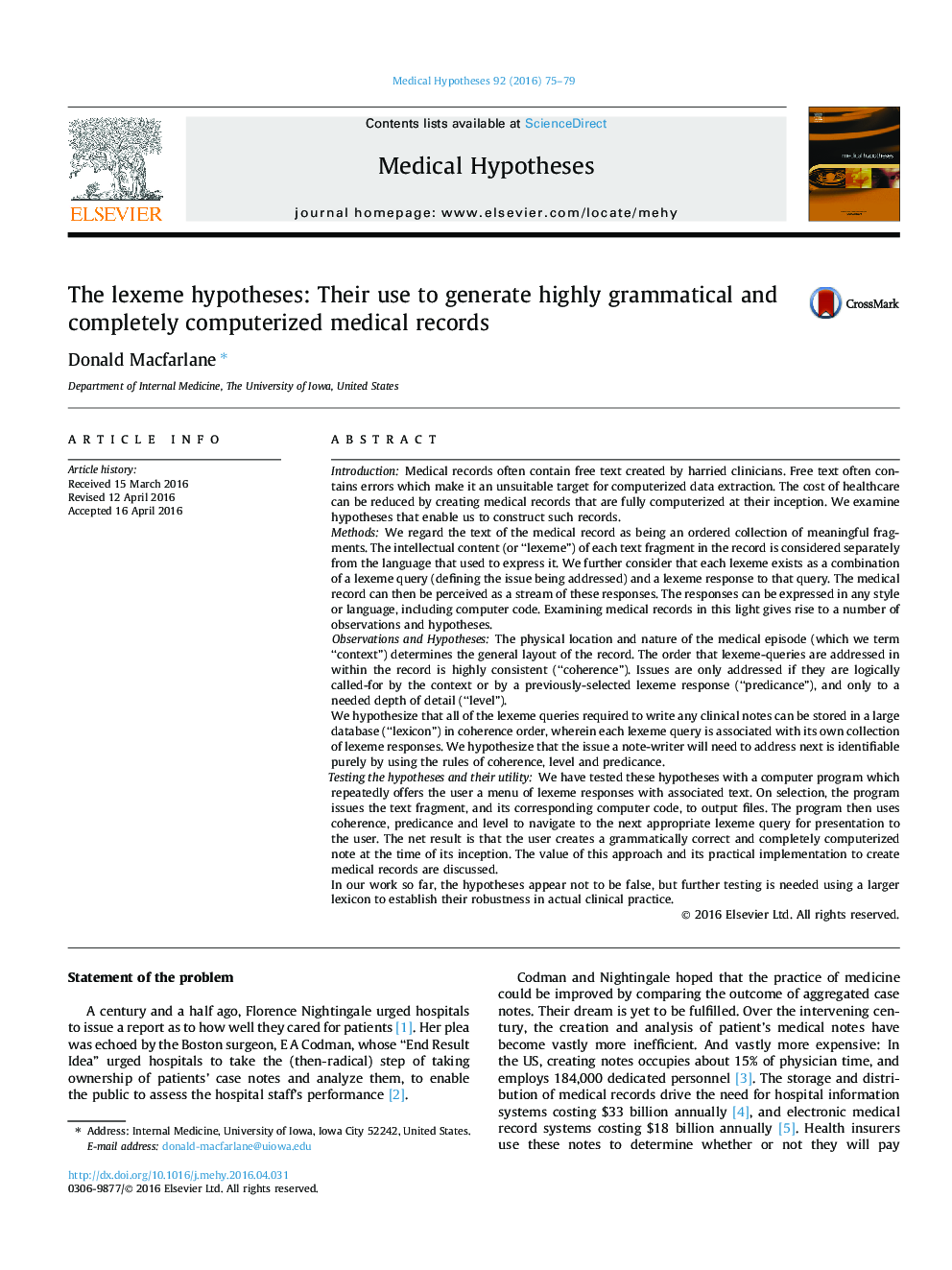| کد مقاله | کد نشریه | سال انتشار | مقاله انگلیسی | نسخه تمام متن |
|---|---|---|---|---|
| 2488922 | 1556553 | 2016 | 5 صفحه PDF | دانلود رایگان |
IntroductionMedical records often contain free text created by harried clinicians. Free text often contains errors which make it an unsuitable target for computerized data extraction. The cost of healthcare can be reduced by creating medical records that are fully computerized at their inception. We examine hypotheses that enable us to construct such records.MethodsWe regard the text of the medical record as being an ordered collection of meaningful fragments. The intellectual content (or “lexeme”) of each text fragment in the record is considered separately from the language that used to express it. We further consider that each lexeme exists as a combination of a lexeme query (defining the issue being addressed) and a lexeme response to that query. The medical record can then be perceived as a stream of these responses. The responses can be expressed in any style or language, including computer code. Examining medical records in this light gives rise to a number of observations and hypotheses.Observations and HypothesesThe physical location and nature of the medical episode (which we term “context”) determines the general layout of the record. The order that lexeme-queries are addressed in within the record is highly consistent (“coherence”). Issues are only addressed if they are logically called-for by the context or by a previously-selected lexeme response (“predicance”), and only to a needed depth of detail (“level”).We hypothesize that all of the lexeme queries required to write any clinical notes can be stored in a large database (“lexicon”) in coherence order, wherein each lexeme query is associated with its own collection of lexeme responses. We hypothesize that the issue a note-writer will need to address next is identifiable purely by using the rules of coherence, level and predicance.Testing the hypotheses and their utilityWe have tested these hypotheses with a computer program which repeatedly offers the user a menu of lexeme responses with associated text. On selection, the program issues the text fragment, and its corresponding computer code, to output files. The program then uses coherence, predicance and level to navigate to the next appropriate lexeme query for presentation to the user. The net result is that the user creates a grammatically correct and completely computerized note at the time of its inception. The value of this approach and its practical implementation to create medical records are discussed.In our work so far, the hypotheses appear not to be false, but further testing is needed using a larger lexicon to establish their robustness in actual clinical practice.
Journal: Medical Hypotheses - Volume 92, July 2016, Pages 75–79
